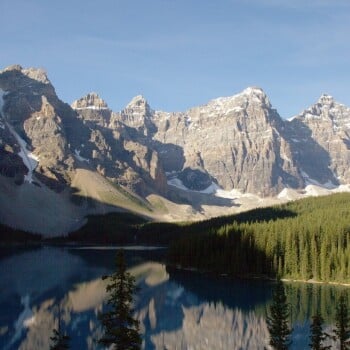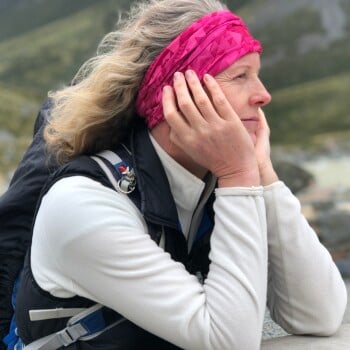
How big is New Zealand?
New Zealand stretches 1600 kilometres (1000 miles) from north to south. It comprises two major islands, the North Island (115,000sq km) and the South Island (151,000sq km), and a number of small islands. New Zealand is about the same size as the United Kingdom but with fewer people (4.5 million at last count).
Where is New Zealand?
New Zealand lies southeast of Australia. Approximate flight times are:
• London to Auckland - 24 hours
• Los Angeles to Auckland - 12 hours
• Sydney to Auckland - 3 hours
When is the best time to visit New Zealand?
Summer and winter temperatures vary by about 10ºC over most of the country, making New Zealand an ideal holiday destination all year round. New Zealand has four distinct seasons; spring (September-November), summer (December-February), autumn/fall (March-May) and winter (June-August). New Zealand’s seasons are the reverse of the Northern Hemisphere. For more information see our weather page.
When are the Public Holidays in New Zealand?
New Zealand celebrates a number of public holidays. It pays to know when they are as most shops (and some services) close during these holidays. Check out the New Zealand public holiday dates.
Do I need any shots?
New Zealand is one of the safest countries in the world. No shots are required to visit New Zealand and none are currently recommended by the World Heath Organisation.
What language is spoken in New Zealand?
English is the common and everyday language. Maori, New Zealand’s other official language, is less widely used. The country is multi-cultural, especially in Auckland, so you will hear many other Polynesian and Asian languages spoken. Want to know more?

What time is it in New Zealand?
Because New Zealand is west of the international dateline it is (arguably) the first country in the world to see the new day. To find out what the time is now check out worldtimeserver.com.
What type of electric plugs do they use in New Zealand?
New Zealand voltage is 240 AC (50 hertz). Most hotels and motels provide 110 volt AC sockets for electric razors only. For all other equipment, an adaptor/converter is necessary unless the item has a multi-voltage option. Please note that power outlets only accept flat three- or two-pin plugs, depending on whether an earth connection is fitted.
What type of money should I bring?
Banks are open Monday to Friday. All major credit cards (American Express, Visa, MasterCard) are widely accepted in New Zealand. Traveller’s cheques are also common and easily exchanged at most banks and hotels. If your credit card has a PIN number you will be able to withdraw cash from ATMs throughout the country. However, nothing beats cash. We spend most of our time avoiding main centres on our tours so you will need to have access to good old New Zealand dollars.
Is tipping expected in New Zealand?
New Zealanders do not expect tips for normal service. It is ok to tip in restaurants or taxis for excellent service. Many of our clients do choose to tip our guides at the end of an awesome trip. This, of course, is totally at your discretion. Offence will NEVER be taken in New Zealand if you don’t tip.
What if I get sick?
There is no free health care for overseas visitors in New Zealand so you need travel insurance. Make sure you check what your policy covers. Some policies won’t cover you if you are scuba diving, skiing, or motorcycling, for instance.
Will my cell phone work in New Zealand?
Hmmmmm, we don’t really know the answer to that one. Some cell phone companies say they will when, in fact, they don’t. On our trips, we spend most of our time in the wilderness where there is often no cell phone coverage. You might as well bring the phone along for convenience sake but, if you are like us, you’ll consider it a blessing that it won’t work. We have two networks, but a bunch of companies. 2degrees is a newer company and lots of travellers like them.

What about phone calls?
To make calls in New Zealand, you can either buy a Telecom phone card (these are available everywhere in NZ$5, $10, $20 and $50 amounts) to use in a public card phone or you can buy an international phone card from newsagents/backpackers, which is cheaper for international calls. There are many different types of card so shop around to find the cheapest rates to the country you wish to call. Local calls are cheapest on the Telecom card; national and international calls are cheapest on phone cards such as Kia ora or e-phone.
Access to the Internet and email
We are not a land of free wifi (yet). Sorry. We have one skinny cable connecting us to the rest of the world and the only way to keep traffic low enough so it won't clog is to make it expensive. Compared to anywhere else, NZ has pretty primitive data specs - speed and cost. There are plenty of internet cafes throughout the main centres of New Zealand. Most public libraries also have internet access. More and more places have wifi but it's still not the norm here. During our trips there are a few opportunities to access email.
Where is the capital of New Zealand?
Wellington is the political capital of New Zealand. The parliament building is known as the beehive (check it out to see why).
What can I do in Wellington?
For some funky ideas of things to do in Wellington check out our Wellington guide.
What can I do in Auckland?
For some funky ideas of things to do in Auckland check out our Auckland guide.
What is a ‘Kiwi’?
The Kiwi, New Zealand’s national emblem, is a flightless bird with a long, slender beak, which it uses to forage for insects. It is found only in New Zealand (and then, only in its wilderness areas), and is active at night. New Zealanders often refer to themselves as Kiwis and the term is also used as a short form for the famous kiwifruit. On the stock exchange, the New Zealand Dollar is also referred to as ‘the kiwi’.












